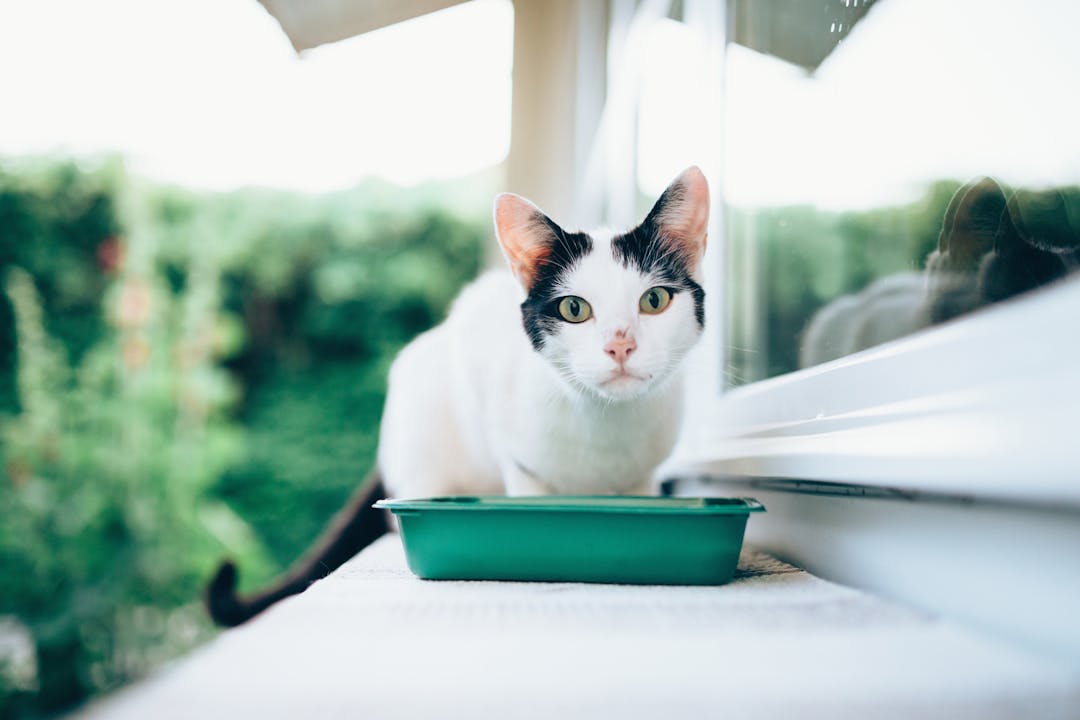Unfortunately, cats aren’t tiny dogs. They are two entirely different species, just like humans, who need different nutrients to receive the best meal possible. Offering up what’s left of the dog food won’t cut it in this case – cats can’t even digest carbs the same way dogs do.
With cat food, you want to look for food that will be a part of a nutritionally complete and balanced diet. While yes, animal protein does give cats some important parts of balanced nutrition, they can’t just eat meat. They need calcium, vitamin D, amino acids, and other key vitamins too!
If you’re a first-time kitty owner, we’ll help you gain valuable knowledge about what’s smart to look for in your cat’s food. If you’re looking to switch up your cat food – we’ve got you covered with all the info to finally make the switch.
Foods for your Cats: What Your Vet Thinks is Best
Ultimately, you want to look for cat food that has natural ingredients listed like veggies, brown rice, potatoes, fruits, etc. When choosing food for the long run, these high-quality superfoods will keep your cat healthy and balanced.
Now, there are a couple of factors that go into figuring out the best food for your kitty:
Age or Life Stage
Do you have a kitten, adult, or senior cat?
For kittens, you’ll need to find a cat food that’s paired with more energy-producing nutrients because kittens need to grow healthy. Top things to look for are fats, proteins, key vitamins, etc.
Once your cat is out of the kitten stage, around one year old, they become an adult cat and should move on to adult food – which is similar to kitten food, but it usually has fewer calories.
For senior cats, around 9-11 years old, it may be beneficial to look into food that’s geared towards your cat specifically.
TLDR;
-
- Kitten food: more carbs and fats to help bulk up and grow
- Adult food: fewer carbs and calories to help maintain
- Senior food: completely specific to your cat’s needs
Consistency
Do you want dry or wet food?
Wet and dry food for cats have their differences, but none that would shockingly make the other one go out of business.
Dry cat food is cheap, easy to store, has a long shelf-life, and doesn’t leave a *smell.* Dry food may have a bit more carbs than wet food, which could make it not recommended for overweight cats.
Wet cat food, of course, is a lot yummier to cats and holds more nutrients than dry food. It doesn’t have as long of a shelf-life, and you have to pop it in the fridge once you open it, but it does have more protein and fat than dry food – which are important for kitties.
Should You Feed Your Cat a Raw Diet?
What is a raw diet?
A raw diet, also known as BARF (bones and raw food), is just that. Uncooked, real meat, and bones.
Should your cat eat a raw diet?
If a vet gives you the go-ahead, it’s a viable option.
Basically, raw meat is great for your cat because of its high-protein and high-moisture contents. Some say cats should eat as close as possible to how they would eat in the wild, and for cats, well, they’re obligate carnivores.
What are the risks?
Most cats will do just fine with a raw diet. But talk to a vet before committing because a raw diet can potentially be bad for kitties with underlying health problems.
There’s always a chance there will be E.coli or salmonella in uncooked meat, but cats’ digestive systems are way better at kicking out pathogens than humans – so they’ll be alright.
At the end of the day, there are many fantastic options cat owners can give to their cat. Whether it be dry, wet, or even raw – make sure they’re getting the most nutritious formula possible. We want our feline friends strong, and ready to live a long, happy life.
So, what is the best cat food? Here are some of our top picks:
Still have cat food-related questions? Talk to a vet now and find out what’s best for your best friend.





